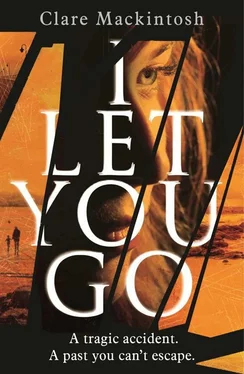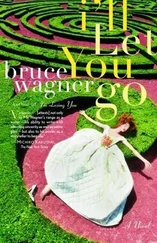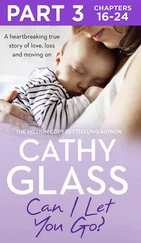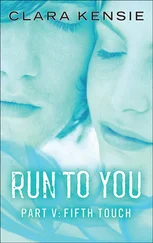All those years ago, when Ray joined the job, it had seemed very simple. Lock up the bad guys and keep the good folk safe. Pick up the pieces from stabbings and assaults; rapes and criminal damages, and do his bit to make the world a better place. But was he really doing that? Stuck in his office from 8 a.m. to 8 p.m. most days, only getting out to a job when he turned a blind eye to the paperwork; forced to toe the corporate line even when it went against everything he believed.
Ray looked at Jacob’s file; stuffed with the results of wild-goose chases and fruitless enquiries. He thought of the bitterness on Kate’s face, and her disappointment that he hadn’t fought harder against the chief’s decision, and he hated the fact that she thought less of him as a result. But the chief’s words were still ringing in his ears, and Ray knew better than to go against direct orders, no matter how strongly Kate felt about it. He picked up Jacob’s file and placed it firmly in the bottom drawer of his desk.
8
The sky has been threatening rain since I came down on to the beach at dawn, and I pull up my hood against the first drops. I’ve already taken the shots I wanted, and the beach is filled with words. I’ve become adept at keeping the sand around my letters smooth and untouched, and more skilled at handling my camera. I studied photography as part of my art degree, but sculpture was always my great passion. Now I’m enjoying getting to know the camera again, playing with the settings in different lights, and carrying it everywhere with me so it becomes as much a part of me as the lumps of clay I used to work with. And although my hand still throbs after a day holding it, I have enough movement left to take pictures. I’ve taken to coming down here every morning, while the sand is damp enough to be malleable, but I often return in the afternoon when the sun is at its highest. I’m learning the times of the tides and for the first time since the accident I’m starting to think about the future; looking forward to the summer, to seeing the sun on the beach. The caravan park is open for the tourist season now, and Penfach is full of people. I find it funny how ‘local’ I have become already: grumbling about the onslaught of tourists; possessive about my quiet beach.
The sand becomes pockmarked from the rain, and the swollen tide begins to sweep away the shapes I have made in the wet sand at the bottom of the beach, undoing the triumphs as well as the mistakes. It has become routine to begin each day by writing my own name close to the shore, and I shiver to see it sucked into the sea. Even though photographs of my morning’s work are safely inside my camera, I’m not used to this lack of permanence. There is no lump of clay I can return to again and again, perfecting its shape, revealing its true form. By necessity I have to work quickly, and I find the process both exhilarating and exhausting.
The rain is insistent, working its way inside my coat and the tops of my boots. When I turn to leave the beach, I see a man walking towards me, a large dog loping along beside him. I hold my breath. He’s still some distance from me, and I can’t tell if he’s deliberately approaching me, or simply heading towards the sea. There is a metallic taste in my mouth and I lick my lips, searching for moisture but finding only salt. I’ve seen this man and his dog before: I watched from the clifftop yesterday morning until they left, and the beach was empty again. Despite the acres of open space, I feel trapped, and I begin walking along the water’s edge, as though I’d always intended to wander this way.
‘Morning!’ He alters his path slightly until he is walking parallel to me.
I can’t speak.
‘Lovely day for a walk,’ he says, tipping his head up to the sky. He’s in his fifties, I think: grey hair under a waxed hat, a closely trimmed beard covering almost half of his face.
I let out a slow breath. ‘I must get back,’ I say vaguely. ‘I have to…’
‘Enjoy your day.’ The man gives a tiny nod of his head and calls for his dog, and I turn inland and jog towards the cliff. Halfway across the beach I turn and check behind me, but the man is still down by the water’s edge, throwing a stick into the sea for his dog. My heartbeat slowly returns to normal, and now I just feel absurd.
By the time I’ve climbed to the top of the cliff I’m soaked through. I decide to visit Bethan, walking quickly to the caravan park before I can change my mind.
Bethan greets me with a broad smile.
‘I’ll put the kettle on.’
She busies herself at the back of the shop, keeping up a cheery monologue about the weather forecast, the threatened closure of bus routes and Iestyn’s broken fence, which resulted in seventy goats escaping overnight.
‘Alwen Rees wasn’t best pleased, I can tell you!’
I laugh – less at the tale itself and more at Bethan’s telling of it, which is accompanied by the flamboyant hand gestures of a born performer. I wander around the shop while she finishes the tea. The floor is concrete, and the walls whitewashed, with shelves that cover two sides of the room. The first time I came here they were empty: now they’re packed with cereal, tins, fresh fruit and veg, ready for holiday-makers. A large chiller cabinet houses a few cartons of milk and other fresh produce. I pick up some cheese.
‘That’s Iestyn’s goat cheese,’ Bethan says. ‘You’re as well to get some while you can – it flies out of the door when we’re busy. Now, come and sit down by the heater and tell me how you’re getting on up there.’ A black-and-white kitten mews by her ankles and she picks it up and drapes it across her shoulder. ‘You don’t want a kitten for company, do you? I’ve three of these little ones to give away – our mouser had a litter a few weeks back. Heaven knows who the dad is.’
‘No, thank you.’ The kitten is absurdly sweet: a ball of fur with a twitching tail like a metronome. The sight of it causes a forgotten memory to surge to the surface, and I shrink back into my chair.
‘Not a cat person?’
‘I couldn’t take care of one,’ I say. ‘I can’t even keep a spider plant alive. Everything I look after dies.’
Bethan laughs, although I wasn’t making a joke. She draws up a second chair, and puts down a mug of tea on the counter next to me.
‘Been taking some snaps, have you?’ Bethan indicates the camera around my neck.
‘Just a few photos of the bay.’
‘Can I see?’
I hesitate, but unhook the strap over my head and turn on the camera, showing Bethan how to flick between images on the screen.
‘These are beautiful!’
‘Thank you.’ I feel myself blushing. I’ve never been good at receiving praise. As a child my teachers would commend my artwork, and display it in reception where visitors sat, but it wasn’t until I was twelve that I began to realise I had a talent, albeit raw and unshaped. The school held an exhibition – a local show for parents and residents – and my parents came to see it together, which was a rarity, even then. My father stood in silence in front of the section where my paintings were displayed, along with a statue of a bird I had made from twisted metal. I held my breath for the longest time, and found myself crossing my fingers in the folds of my skirt.
‘Incredible,’ he said. He looked at me as though he were seeing me for the first time. ‘You’re incredible, Jenna.’
I could have burst with pride, and I slipped my hand in his and took him to Mrs Beeching, who talked about art colleges and bursaries and mentoring. And I just sat and gazed at my father, who thought I was incredible.
I’m glad that he isn’t here any more. I would hate to see disappointment in his eyes.
Читать дальше












